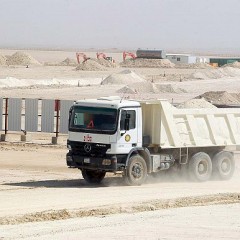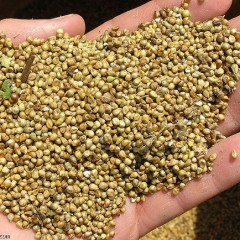
China
Largest trading country in the world, trade exchange values exceed 4,000

China has maintained an economic growth rate of 7.7% for 2013; the same percentage was recorded in 2012, exceeding the growth target by 7.5%. The Chinese economy registered a significant recovery in the third quarter before it tumbled in the fourth quarter of last year. China prepared a rehabilitation program that aims at restoring the balance of growth, in order to focus on domestic consumption rather than on infrastructure investments. According to data made available by the Chinese Customs, China has become the world’s biggest goods trading nation, overtaking the US after its annual trade exceeded $4000 billion for 2013. Chinese exports rose by 7.9% to reach $2210 billion, while imports increased by 7.3%. Hence, the trade surplus rose up to $260 billion, equivalent to 12.8%, and the total foreign trade reached $4160 billion, by 7.6%. The volume of overseas investments in Chinese mergers and acquisitions also increased during the first half of 2013, following the announcement of 98 foreign transactions totaling $35.3 billion, compared to 97 transactions in 2012, valued at $22.9 billion. These transactions were mainly based on the energy sector and consumer goods-resources sectors in the Middle East and the world. The World Economic Forum in Davos, recently discussed the change in the Chinese economy from high-speed growth to stable growth. The forum tackled the impact of China’s financial reform on the systematic reform in the country, in addition to the global benefits that might pop up, as China promises a more open economy. The final reading of the Market Index HSBC for the PMI for January, decreased to 49.5 points, from 50.5 in December. This decline is the first since six months ago. The said figure complies with the first reading of the index of 49.6, which was issued a week before the end of January. Indeed, 50 points do separate the growth and contraction in manufacturers’ activity, which saw a weakness in the productivity growth and new orders. This fact forebodes a weak start for the economy in 2014.

















